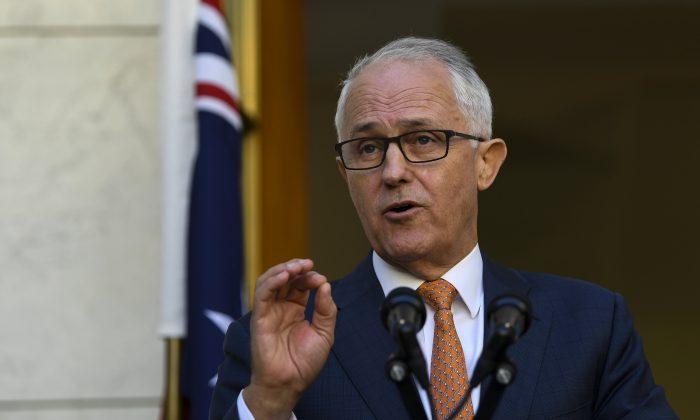The Chinese Communist Party (CCP) has denied allegations of meddling in Australian affairs and launched a rare diplomatic protest.
The telecommunications company was targeted by a U.S.-China Economic and Security Review Commission report, which was released in April, that said the company has extensive ties with the Chinese regime. Ren Zhengfei, the founder of the company, was a former officer in the People’s Liberation Army (PLA). He continues to run the company today.
Turnbull said on June 27 his government was still mulling Huawei’s role in the country’s nascent 5G network.
“We'll continue to consider that and get the best advice on that from our national security agencies,” he said.
It is expected to pass in the Senate due to strong bipartisan support from the Labor Party following several revisions to the legislation in recent months.
Another law banning foreign political donations has yet to be introduced in the lower house.
Turnbull acknowledged in April that relations with China, which included two-way trade of A$170 billion (US$125.60 billion) last year, had soured because of the legislation.
“But I am very confident that any misunderstandings will be resolved.
“We have a very strong and respectful relationship with China and like any nation we do everything we can to ensure that any foreign influence in our politics is open and declared.
“We don’t accept foreign interference in our political or governmental processes and that is not directed at any one nation.”





